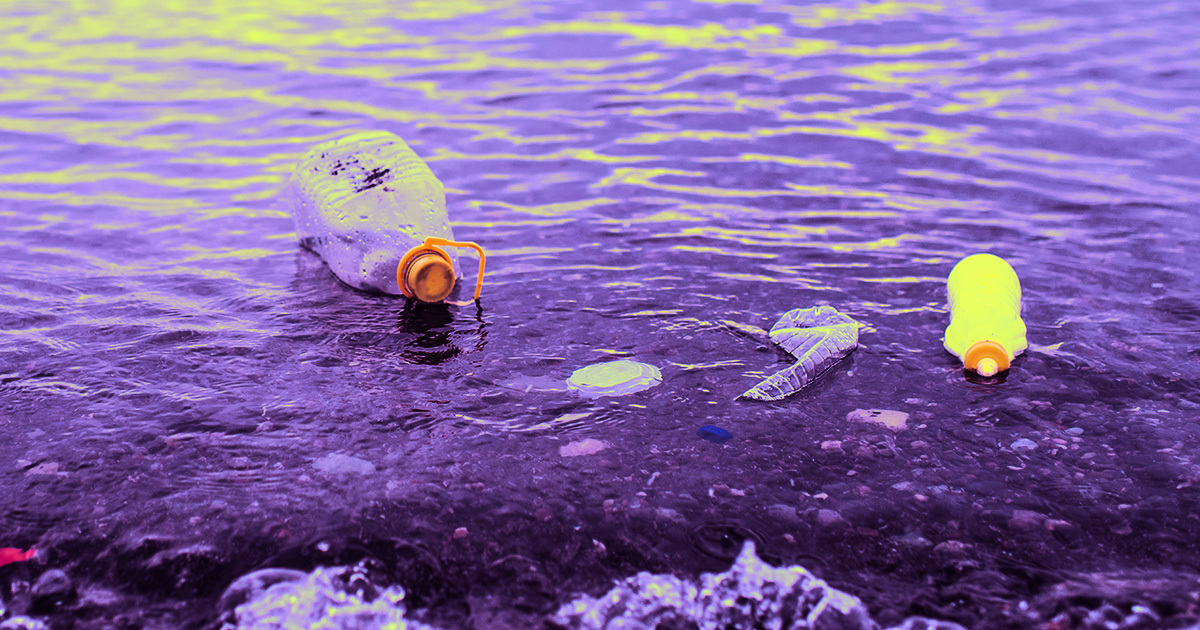cross-posted from: https://lemmy.ml/post/16488358
Scientists Find Plastic-Eating Fungus Feasting on Great Pacific Garbage Patch
Sounds like great news, no?
Just as we had a time before fungus digesting plant matter, we’ve now had a time before fungus digesting plastics.
“Soon” we’ll get bacteria and insects doing the same, and all our plastic buildings will need to be protected just as the wood ones.
I guess all plastic will be biodegradable eventually.
Not really good news for the plastic that isnt waste. Plastic pipes or structures in buildings that were meant to last decades we dont want eaten away by fungus
Still it’s a positive net balance for the planet if it happens this way. But I think the “plastic safety” (in a food sense) would also end?
“The planet” doesn’t have interests so everything is neutral to the planet
Hate to break it to you, but if you store your food for years above freezing and without a protective atmosphere in a plastic container it’s spoiled anyway.
Yup. Plastic’s main selling point, it’s durability, is no longer going to be a factor when choosing it as a material.
“Nature finds a way” – Dr. Ian Malcolm
The plastic simply was a too nice of an energy source to be left aside by microorganisms. There are microorganisms for basically any energy source the world provides. There are bacteria that live on undersea volcanoes feasting on acids and carbon dioxide, so a fungus eating plastic is no actual surprise.
Unless you include the “uh” in that quote I can’t hear Jeff Goldblum say it, and that’s a trigger I didn’t know it had. So, thanks?
Also he said life, not nature.
It also impresses me that there’s bacteria eating metal under the sea.
“…at a rate of roughly 0.05 percent per day … would take a very long time” … but by my quick calculation 0.9995^3650 is 84% per decade, which is not long. Almost instantaneous on a geological timescale - and think how much the world changed when fungi learned how to digest lignin in wood - ending the era of coal-forming swamps.
It’s going to be a significantly different number than that. You have to factor in growth rate in a resource-abundant environment as well as reduced access to food sources as more of the patch is consumed. But yeah, you’re right that’s actually a very fast rate of consumption of a non-naturally-renewing food source.
I can’t tell if it’s a good news or bad news.
Fungus are great news, the best nonplant plant in the ecosystem
All in all good news. It means less plastic and more biomass.
And more CO2
Yup, if we can sequester the extra CO2 in the biomass part of the carbon cycle I think that’s the best solution, it doesn’t fight life on the planet, instead it works with it.
There’s a lot of discussion in here about how great this is. And it is. But it is at odds with another environmentalist concern.
What if we could take carbon dioxide and turn it into something that can’t be degraded by living organisms? Well, plastic is one of those things, or was. Plastic is a form of carbon sequestration.
These micro organisms, they’re turning plastic into carbon dioxide. Any and all carbon compounds on earth will enter the carbon cycle. every drop of oil pulled out of the ground, even the stuff that’s used to make plastic, will wind up in the atmosphere.
Well, sure. And that’s really bad for Ice Age evolved macro-species that require a certain survivable temperature and condition to thrive. But you’re missing the bigger picture. For lots of plants and bacteria and various insecticidal organisms that thrive in hot, humid environments, this is going to be absolutely amazing.
Yes, humans are absolutely fucked, along with enormous chunks of the mammalian class of species. But life will continue on in exciting new ways.
Exciting for whom?
Algea and algea adjacent species, mostly.
Conveniently, nature has provided us with another carbon sequestration method that has a lot of other benefits, ranging from being a good building material, to helping regulate the local temperature: trees.
Yep, I concur. I’m of the opinion that that’s all you need to solve this problem.
Like good news right but also fuck my life



